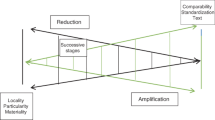Abstract
Consumers’ concerns for the environment have led to the creation of niche markets, quality certifications and labelling systems. Built by activists and NGOs, these systems were adopted by agribusiness. Such firms try to capture consumers and react to opinion campaigns, whilst appropriating the conservation (or ‘fair’) discourse. This leads to the rise of new forms of third-party certifications of food production based on private standards and, hence, to new forms of contract relations between producers and buyers. The nature of these relationships is not always evident in these new labels or in the discourse built to justify them. This is particularly so in the case of goods produced in the South to be traded and sold in the North, as the case of Starbucks illustrates. By the end of the 1990s, Starbucks, operating through an NGO called Conservation International (CI), arrived at the region of El Triunfo, in Chiapas, and contacted the producers’ cooperatives that were trying to find a market for their product. CI promoted Starbucks standards to raise the coffee quality and won the control over the production system. Meanwhile, the producers forced to sell their coffee through the largest trade company (AMSA) against whom the cooperatives were created, lost the control over their own organization. When some cooperatives refused the deal, they suffered divisions but could survive thanks the Fair Trade (FT) network in Chiapas.
Similar content being viewed by others
Abbreviations
- AMSA:
-
Agroindustries of Mexico
- CAFE Practices:
-
Coffee and Farmer Equity Practices
- CESMACH:
-
Ecological Farmers of the Sierra Madre of Chiapas
- CI:
-
Conservation International
- FLO:
-
Fair Labelling Organization International
- FT:
-
Fair trade
- ICEAAC:
-
Indigenous and Ecological Farmers of Angel Albino Corzo
- ISMAM:
-
Indígenes de la Sierra Madre de Motozintla
- NGO:
-
Non-governmental organization
- OPCAAC:
-
Coffee Producers Organization of Angel Albino Corzo
- ORPAE:
-
Regional Organization of Agroecological Producers
- SAI:
-
Sustainable Agriculture Initiative
References
Barrientos S, Conroy ME, Jones E, 2007. Northern social movements and Fair Trade. In: LT Raynolds, D Murray, J Wilkinson (eds) Fair Trade: The challenges of transforming globalization. Routledge, London and New York, pp 51–62.
Busch L., 2007. Performing the Economy, Performing Science: From Neoclassical to Supply Chain Models in the Agrifood Sector. Economy and Society, Vol.36, nº3: 439-468.
Busch L., Bain C., 2004. New! Improved? The Transformation of the Global Agrifood System. Rural Sociology, 69(3): 321-346.
Fridell G., 2009. The Co-Operative and the Corporation: Competing Visions of the Future of Fair Trade. Journal of Business Ethics, 86(1), April 2009, 81-95.
Fridell M., Hudson I. y Hudson M., 2008. With friends like these: the corporate response to Fair Trade Coffee. Review of Radical Political Economics, Vol. 40. Nº1: 8-34.
Gereffi G., Garcia-Johnson R., Sasser, E., 2001. The NGO-Industrial Complex. Foreign Relations, 125: 56-65.
Groodnik A, Conroy ME (2007) Fair Trade Coffee in the United States: Why Companies Join the Movement. In: LT Raynolds, D Murray, J Wilkinson (eds) Fair Trade: The Challenges of Transforming Globalization. Routledge, London and New York, pp 83–102.
Hatanaka M. y Busch L., 2008. Third Party Certification in the Global Agrifood System: An Objective or Socially Mediated Governance Mechanism? Sociología Ruralis, Vol. 48, Nº 1: 73-91.
Jaffee D., 2007. Brewing Justice: Fair Trade, Coffee, Sustainability and Survival. University of California Press, Berkeley, CA.
Mutersbaugh T., Klooster D., Renard M.-C., Taylor P., 2005. Certifying rural spaces: quality-certified products and rural governance in the global South. Journal of Rural Studies Vol. 21, nº 4: 381-388.
Raynolds, L., D. Murray and A. Heller: 2007, ‘Regulating Sustainability in the Coffee Sector: A Comparative Analysis of Third-Party Environmental and Social Certification Initiatives’, Agriculture and Human Value 24(2), 147–163
Raynolds L. and Wilkinson J. (2007) Fair Trade in the Agriculture and Food Sector: Analytical Dimensions. In: LT Raynolds, D Murray, J Wilkinson (eds) Fair Trade: The Challenges of Transforming Globalization. Routledge, London and New York, pp 33–47.
Reed D., 2009. What do Corporations have to do with Fair Trade? Positive and Normative Analysis from a Value Chain Perspective. Journal of Business Ethics, 86(1), April 2009, 3-26.
Renard, M.-C.: 1999a, Los intersticios de la globalización. Un label (Max Havelaar) para los pequeños productores de CAFE (CEMCA, México).
Renard M.-C., 1999b. The interstices of globalization: the example of Fair Coffee. Sociología Ruralis 39, (4), 484-501.
Renard M.-C., 2003. “Fair Trade: quality, market and conventions”. Journal of Rural Studies Vol. 19, nº 1:87-96.
Renard M.-C., 2005. “Quality certification, regulation and power in Fair Trade”. Journal of Rural Studies Vol. 21, nº 4: 419-432.
Renard M.-C. and PérezGrovas V. (2007) Fair Trade in México: At the Center of the Debates. In: LT Raynolds, D Murray, J Wilkinson (eds) Fair Trade. The Challenges of Transforming Globalization. Routledge, London and New York, pp 138–156.
Wright W., Middendorf G. (2008) Fighting Over Food: Change in the Agrifood System. In Wright W., Middendorf G. (eds) The Fight Over Food: Producers, Consumers, and Activists Challenge the Global Food System , University Park, pp 1–26.
Yépez, I. and M. Mormont (coord.), 2006: Le commerce équitable face aux nouveaux défis commerciaux: évolution des dynamiques d’acteurs. Rapport final (Politique Scientifique Fédérale, UCL, Ulg, Belgique).
Author information
Authors and Affiliations
Corresponding author
Rights and permissions
About this article
Cite this article
Renard, MC. In the Name of Conservation: CAFE Practices and Fair Trade in Mexico. J Bus Ethics 92 (Suppl 2), 287–299 (2010). https://doi.org/10.1007/s10551-010-0584-0
Published:
Issue Date:
DOI: https://doi.org/10.1007/s10551-010-0584-0




